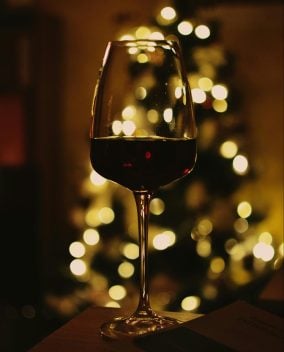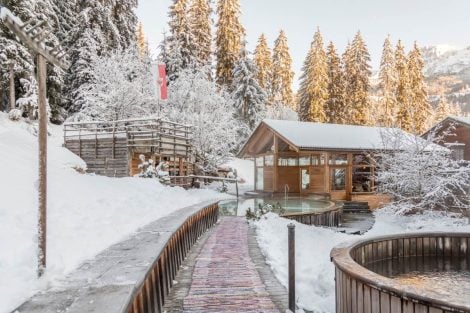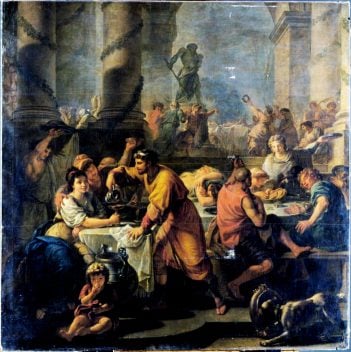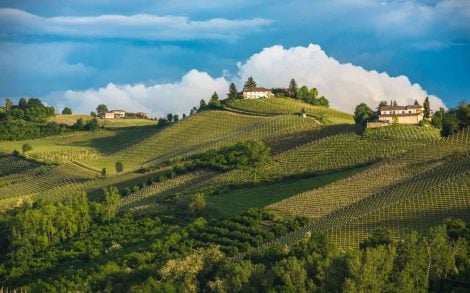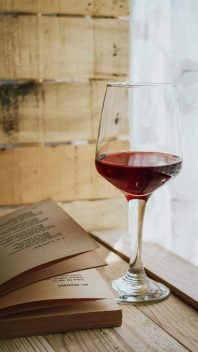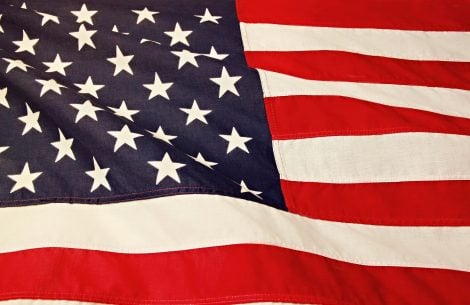Myths, legends, and stories define the landscape of the Strait of Messina. The most literary stretch of sea, celebrated by poets and writers, perpetuates the ritual of traditional fishing in the Strait, recently included in the Slow Food Presidia. Here, where the Ionian and Tyrrhenian seas meet, Calabria and Sicily attempt to embrace, watched over by the monsters Scylla and Charybdis. The only bridge that exists is that of fish biodiversity. From April to September, Mare Nostrum is dotted with feluccas, boats of probable Phoenician origin, dedicated to traditional fishing in the Strait, through the division between Messina and Reggio Calabria, of portions of the sea where they fish for swordfish, tuna, Atlantic saury, albacore, bullet tuna, and bluefish.
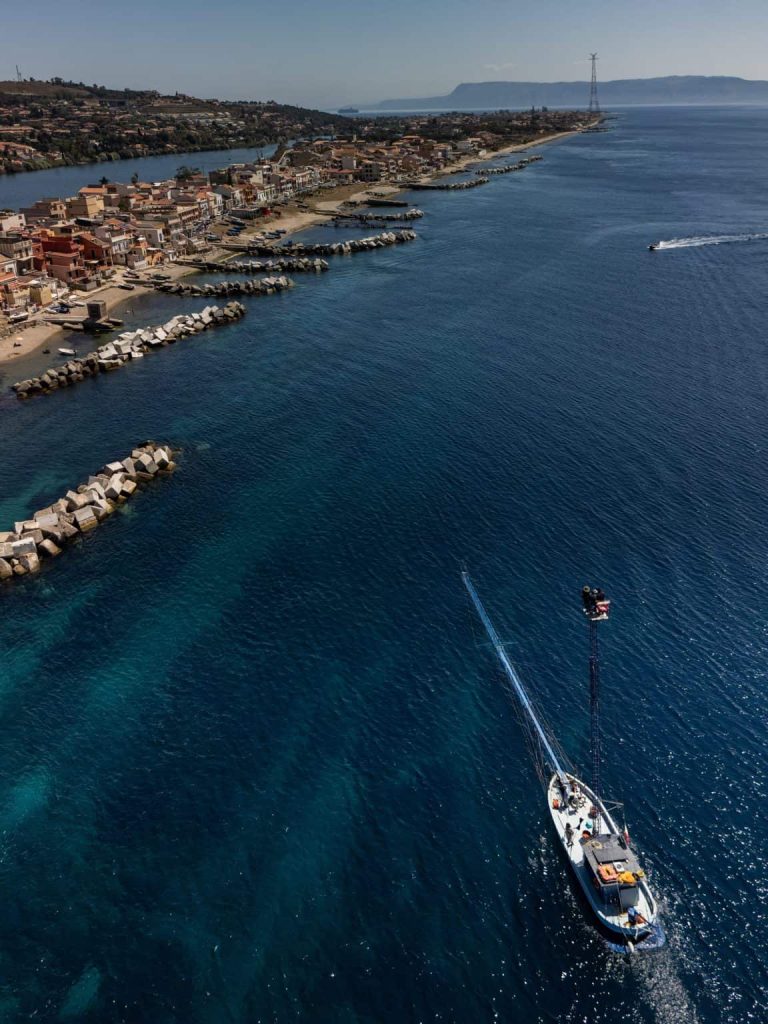
Swordfish hunting in the strait
The most evocative, a ritual made of symbols, codes, mantras, sightings, is the hunt for swordfish with the felucca, a fishing method deemed sustainable as it avoids the adrenaline stress of the swordfish, unlike fishing with the longline. The latter is a technique involving a long line with hooks at regular intervals, called longline. It consists of a main line, on which several branch lines with hooks are attached, and a basket to collect the prey after they are tricked. From early spring to September, aided by the rising temperatures of this portion of the sea, the swordfish crosses the Strait swimming near the surface and lingering longer in these waters before laying eggs in the Aeolian Islands.
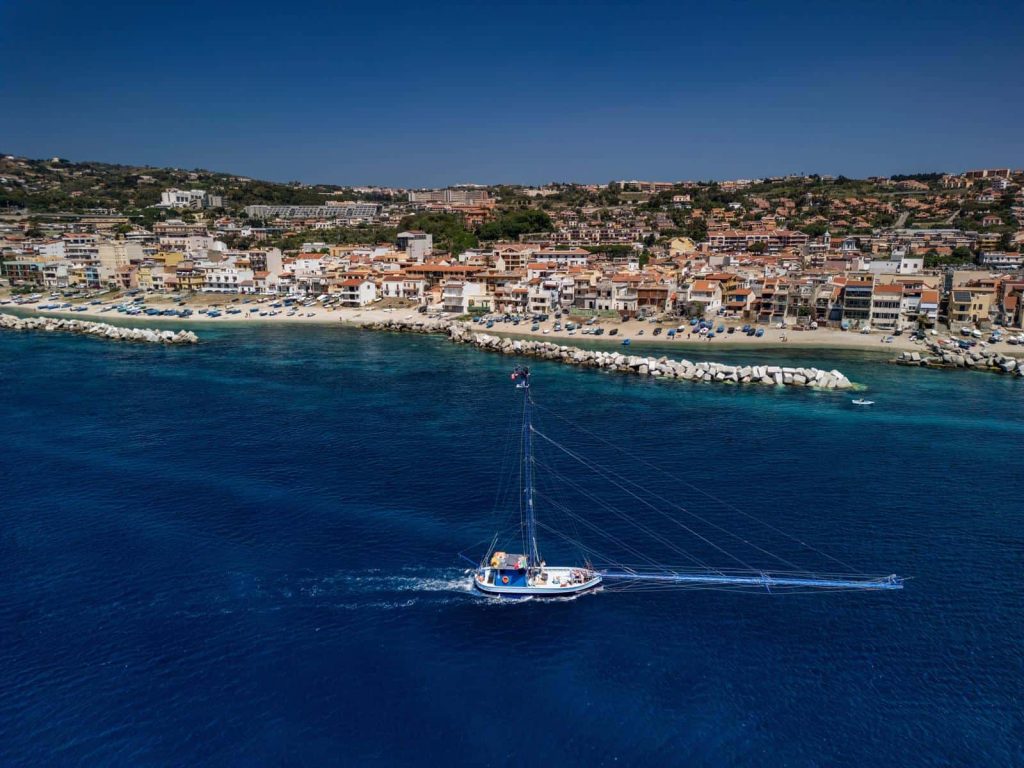
"Passa dabbanna," the code cry, almost a mantra, invokes the moment of spotting the swordfish from the top of the antenna that watches over the felucca. A mast up to 22 meters high becomes a floating observatory captained by the "ntinneri," the keen observer. Then, the rush towards the long gangway of the felucca, hoping to harpoon the swordfish. This task falls to the "lanzaturi," who waits for the perfect moment to strike the swordfish with the spear, a Greek-origin two-pronged lance. The swordfish is brought onto the felucca via the "luntri," agile small boats. Finally, the incision that marks the capture and the end of the long ritual: the "cardata da cruci," a series of overlapping crosses on the animal's head.
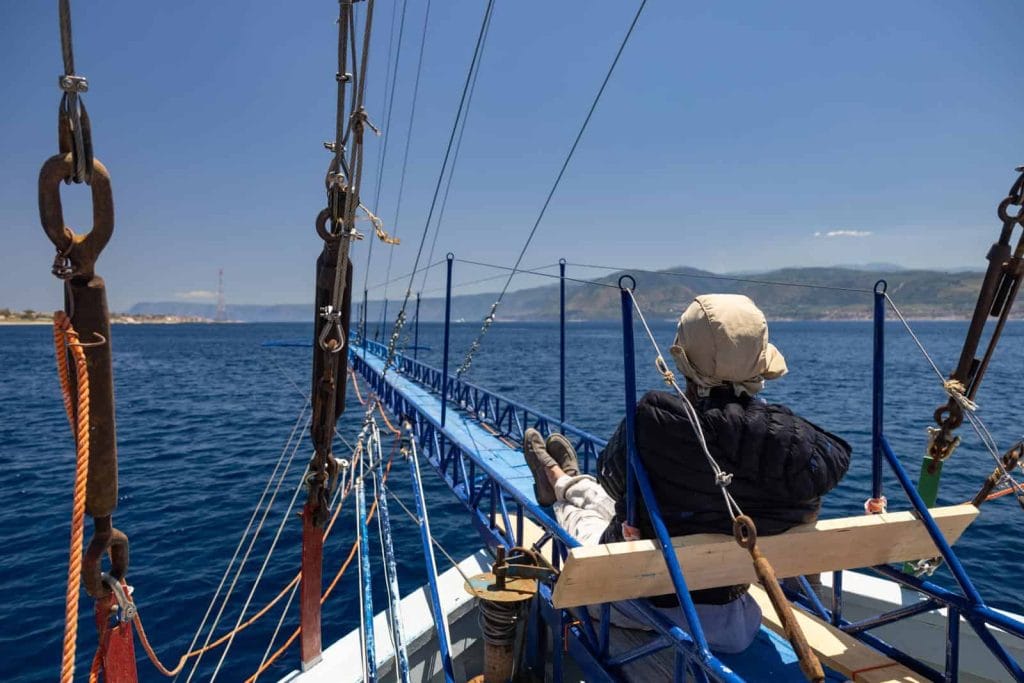
Antonella's Felucca
Antonella Donato, fisherwoman and president of the Felucca Fishermen's Association of the Strait, after a degree in political science and a career in hospitality, took the helm as the crew's captain and brought the family felucca back to the sea, honoring her grandfather fisherman's passion and work. Together with her sister, she engages in fishing tourism in the Strait of Messina. Every day at dawn, Antonella sets out to sea accompanied by the felucca crew and many curious tourists. A day that ends before sunset, made of waits, patience, disappointments, changing currents, and mixing waters. Days under the sun that often guarantee no fishing catch. An activity intended to be a new form of tourism involving enthusiasts who, if conditions and a bit of luck permit, can witness every moment of the fishing ritual in the Strait up to the final catch.
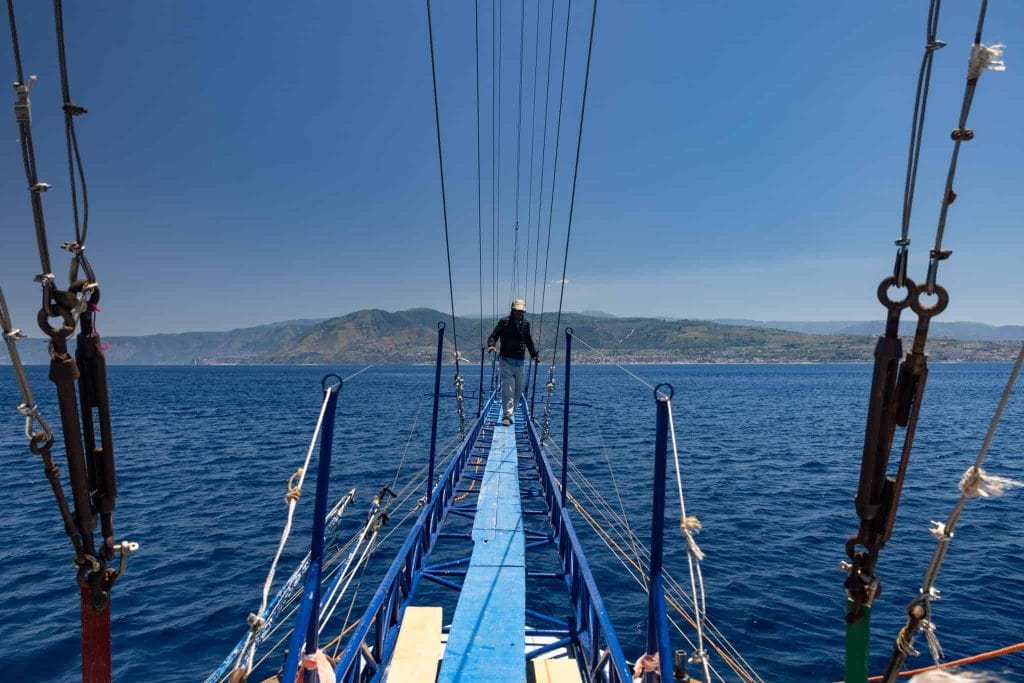
Market stalls
"Protecting Strait fishing means safeguarding an entire supply chain and aiming for quality. The felucca fishing technique is the most sustainable in terms of methods and is the one that guarantees the integrity and quality of the caught fish, benefiting from the marine biodiversity of this stretch of sea," comments Antonella Donato. If not in quantity, Strait fishing excels in quality. Antonella Donato's felucca mainly catches swordfish but also bluefin tuna (1000 kg) and Atlantic saury. The most prized and renowned swordfish from the Strait is sold to traders at a price ranging from 11 to 15 euros per kg. At fish market stalls, it reaches up to 30 euros during high season. Nino Mostaccio, Slow Food representative for the Traditional Fishing Presidia of the Strait and president of Slow Food Messina, has strongly advocated for the protection of Strait fishing and has worked to achieve the Presidia.
"This Presidia has significant symbolic value for us, representing an opportunity to strengthen bonds and build new connections to protect, safeguard, and enhance the entire Strait of Messina area, a stretch of sea that unites Sicily and Calabria, two lands with many elements of contact, not only with each other but with the entire Mediterranean. More than a product, we want to enhance and protect fishing, an activity supporting a supply chain and fishermen," affirms Nino Mostaccio.
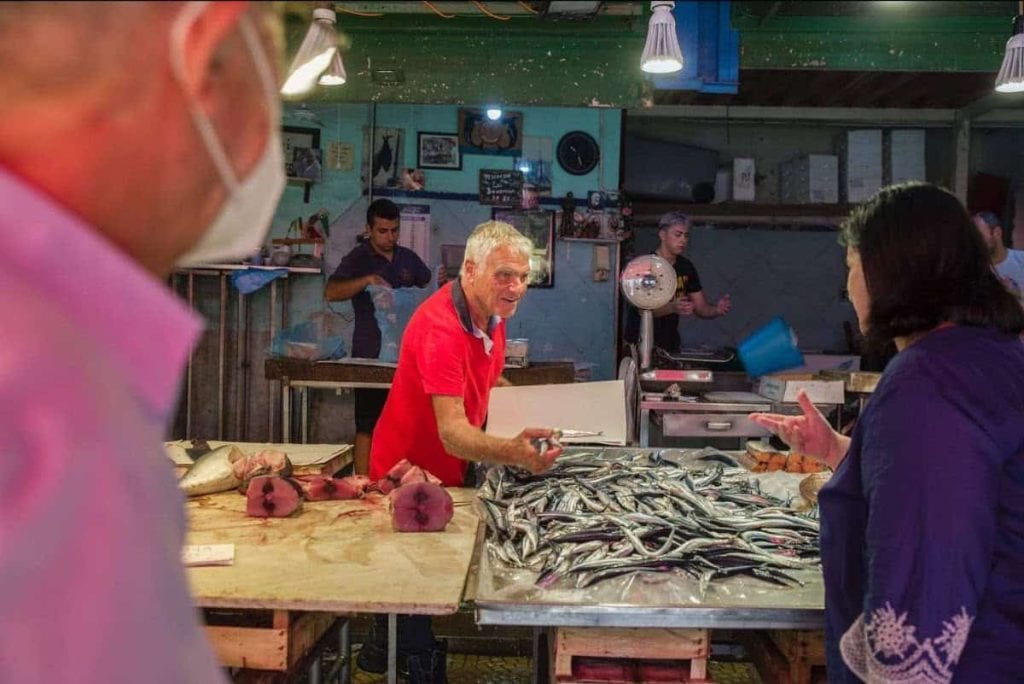
At the restaurant
At Casa&Putia, the restaurant Nino manages with his wife Adriana, brother Marcello, and partner Andrea, local fish is valued, along with species forgotten by the current marine culture like the "ope," bullet tuna. The Casa&Putia menu celebrates Messina and its ichthyic wealth: classic stockfish, stockfish rolls, Strait swordfish. The traditional catch from the Strait offers the daily catch from the feluccas and follows a necessary and natural seasonality while swordfish is cooked in historic Messina recipes: rolls and "alla ghiotta." "It seems there is a flattening in the restaurant industry, the alternative is sustainability, simplicity. Everything in our sea is wasted because we think it no longer fits consumer tastes. And instead, we are wrong. We try to weave a tale of the sea starting from the Strait's fishing tradition and its catch, known for its quality and richness thanks to the biodiversity and waters of the Strait," continues Nino Mostaccio.
The next challenge? Nino has no doubts: "We are working on transforming the fish through artisanal canning businesses to guarantee a constant economic source for our fishermen." Meanwhile, the stories echo in the Strait's waves that Homer described when recalling Ulysses' famous passage: "From there no ship of men ever escaped, but the waves of the sea and the fatal whirlpools carry away the planks of ships and the bodies of men. Only one long ship managed to pass from there."

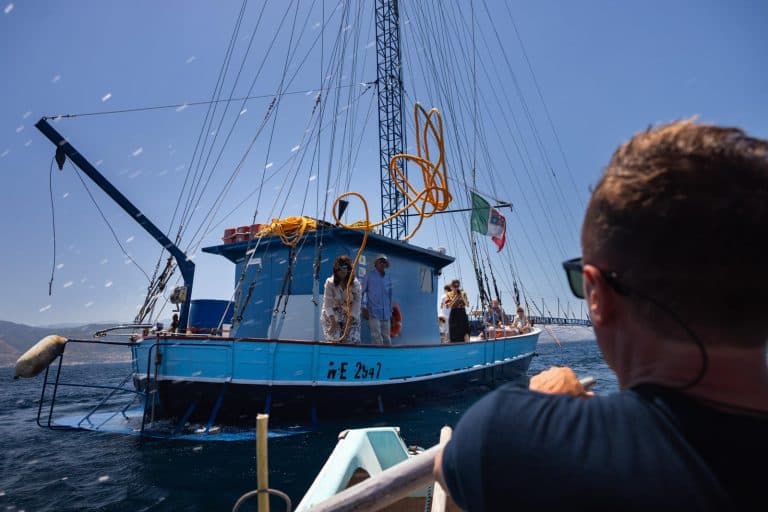
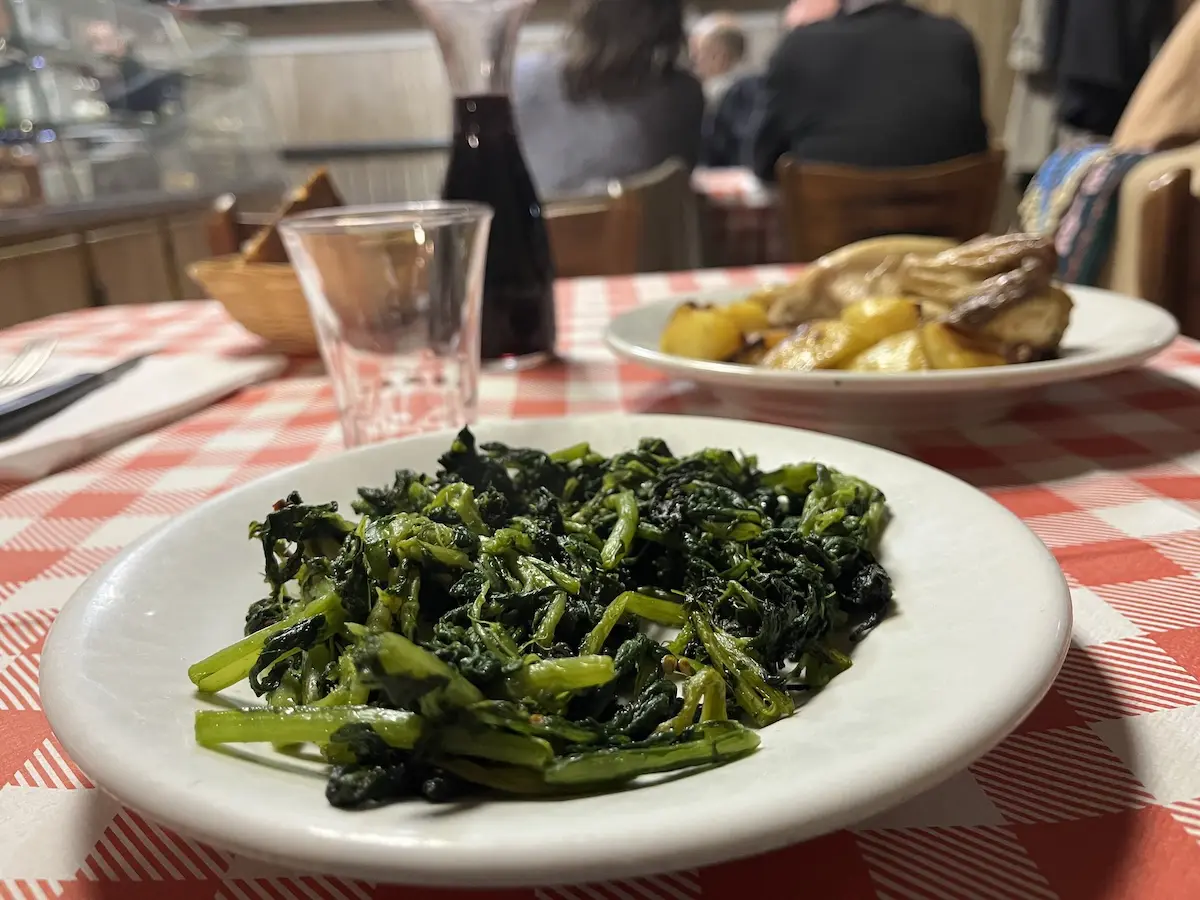 Why not every trattoria should be written about
Why not every trattoria should be written about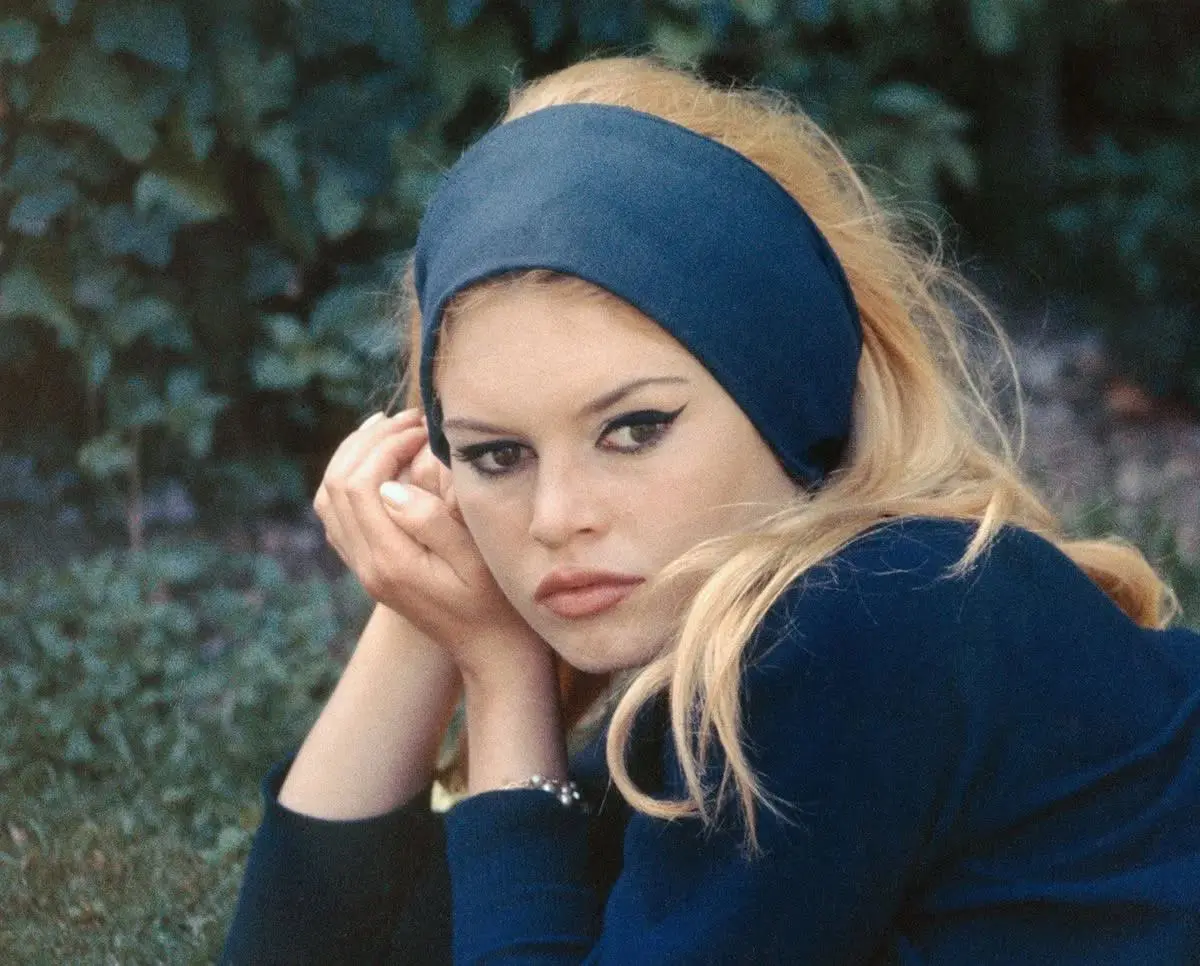 Brigitte Bardot’s final rosé: the wine that marks the end of an icon
Brigitte Bardot’s final rosé: the wine that marks the end of an icon What you need to know about Italy's new decree on dealcoholised wine
What you need to know about Italy's new decree on dealcoholised wine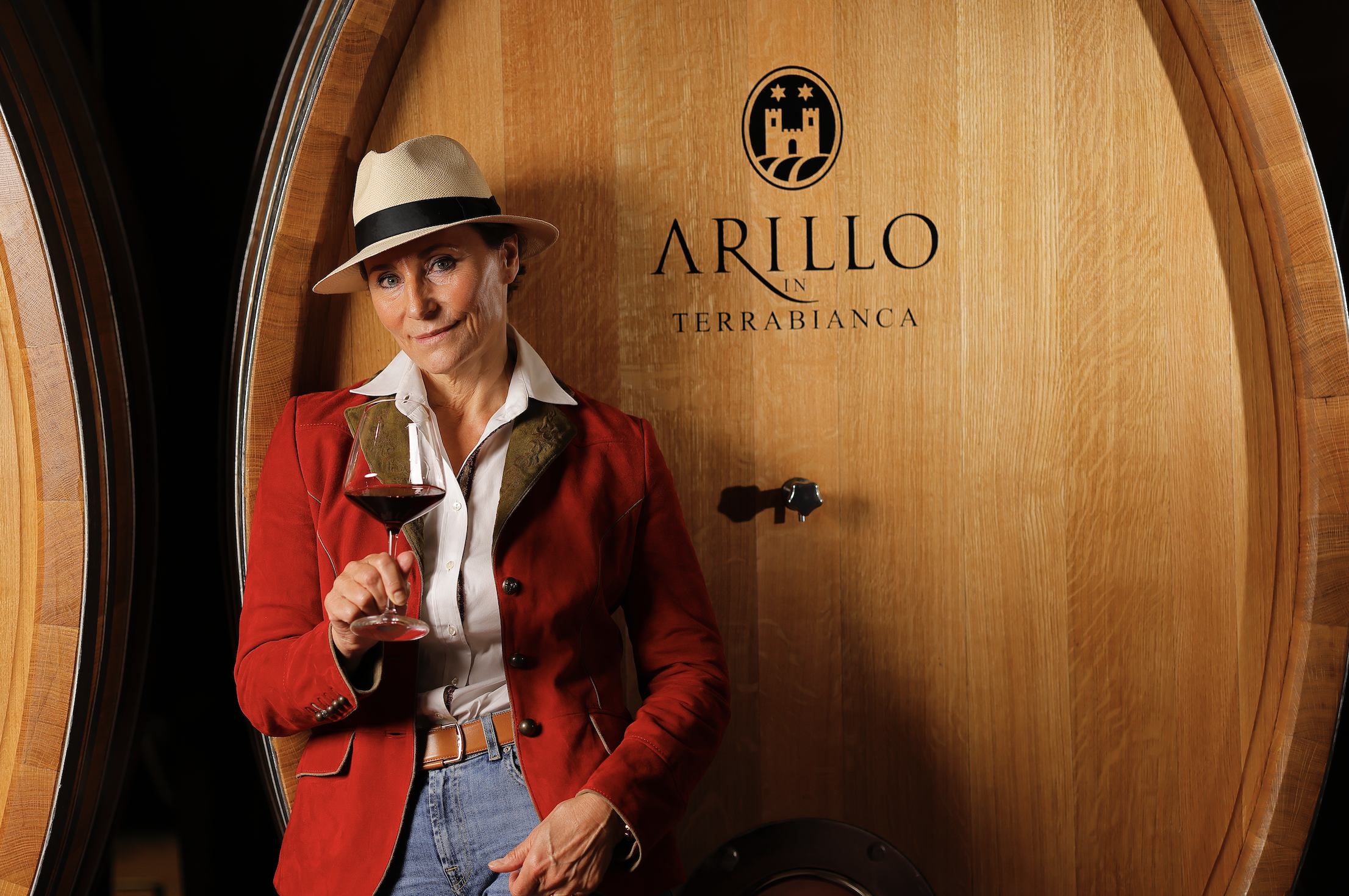 Why Arillo in Terrabianca's organic approach is paying off
Why Arillo in Terrabianca's organic approach is paying off